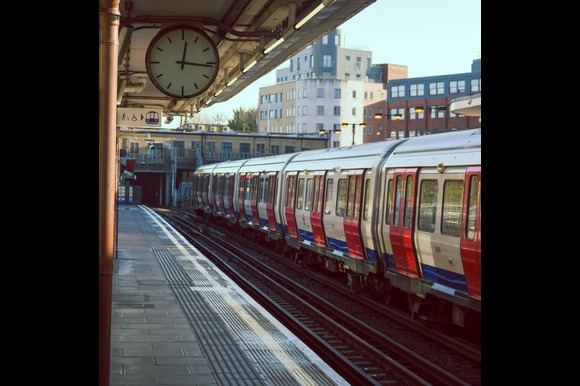Train engineers with New Jersey Transit went on strike Friday, stranding an estimated 350,000 commuters in New Jersey and New York City and forcing many to either find alternative transportation or stay home. The strike, marking the state’s first major transit walkout in over four decades, follows the breakdown of contract negotiations on Thursday.
Talks between NJ Transit management and the Brotherhood of Locomotive Engineers and Trainmen (BLET) failed to produce an agreement, prompting union members to walk off the job. The strike comes just one month after union members overwhelmingly voted to reject a proposed labor agreement from the agency.
“We gave them our final proposal, but they rejected it and walked out with two hours left in the negotiating session,” said Tom Haas, general chairman of BLET. Meanwhile, NJ Transit CEO Kris Kolluri characterized the situation as merely a “pause in the conversations,” rather than a collapse of talks.
“I absolutely expect these discussions to continue as soon as possible,” Kolluri said Thursday night during a joint press conference with New Jersey Governor Phil Murphy. “If they want to meet tonight, I’ll meet tonight. If it’s tomorrow morning, I’m there. Because I believe this is a solvable issue. The question is: are they willing to find a solution?”
Governor Murphy stressed the need to reach a final agreement that balances fairness for workers with fiscal responsibility. “We can’t ignore the agency’s financial realities,” he said.
According to union officials, the announcement of the strike followed 15 continuous hours of bargaining on Thursday. Picket lines were scheduled to begin at 4 a.m. Friday.
NJ Transit — the country’s third-largest public transit system — operates extensive rail and bus routes across the state, moving nearly one million passengers on weekdays. The current strike has paralyzed all NJ Transit commuter train services, which include vital connections between northern New Jersey and New York City’s Penn Station, as well as routes serving Newark Liberty International Airport, which is already dealing with unrelated delays.
In anticipation of a strike, NJ Transit had rolled out contingency plans earlier in the week. The agency pledged to expand bus service starting Monday and also plans to contract with private carriers to operate buses from strategic park-and-ride locations during peak weekday hours. However, NJ Transit warned that these measures would only cover a fraction of displaced rail passengers — about 20% of the current train ridership — and advised people to work from home if possible.
The looming threat of a strike had already started to affect travel plans. For instance, NJ Transit canceled train and bus services to the Shakira concerts scheduled for Thursday and Friday at MetLife Stadium in East Rutherford, New Jersey.
Earlier in the week, the two sides met with the National Mediation Board in Washington, D.C., and a federal mediator was also present during Thursday’s negotiations. Kolluri said that the board has proposed a new session for Sunday morning to resume talks.
The key sticking point in the negotiations is wages. The BLET is demanding pay increases that would bring engineer salaries in line with those at comparable regional railroads. The union claims that its members currently earn an average of $113,000 annually and are seeking a new contract that would raise that figure to around $170,000 per year. NJ Transit officials dispute the union’s numbers, stating that the average total compensation for engineers is closer to $135,000, with some employees earning over $200,000 annually.
Kolluri and Governor Murphy emphasized that the issue is not just about wage increases for one group of workers but the broader financial implications such raises could have across the agency. They warned that agreeing to the union’s demands might spark similar wage requests from other NJ Transit unions, potentially destabilizing the agency’s budget.
Although Congress has the authority to intervene in the strike and impose a resolution — as it did in 2022 to avert a national freight rail shutdown — lawmakers have so far shown little appetite for doing so in this case.
Meanwhile, NJ Transit has been struggling with a shrinking workforce. The number of engineers employed by the agency has dropped from around 500 just a few months ago to approximately 450, as more workers leave for higher-paying opportunities at competing railroads.






